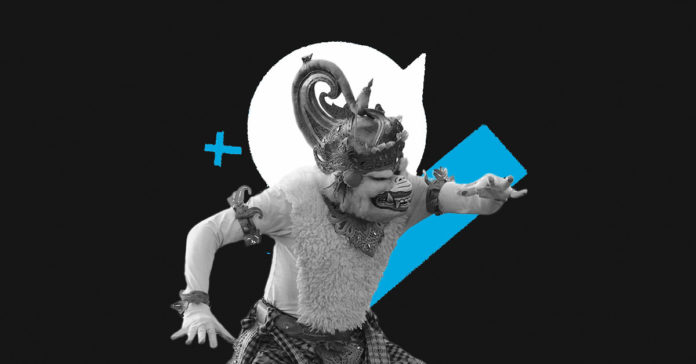Unity of God
Hindus’ belief in God is contradictory. While they believe in and worship many gods and goddesses, they at the same time profess to believe in one god. If someone asks them about the number of deities, they will invariably say, “one”. There is scarcely any article of faith, on which they are more agreed. ‘God is one without a second, is a phrase on the lips of every one who speaks about the deity. Their belief in one God is in accord with a hymn of the Rig Veda which reads like this: “They call him Indra, Mitra, Varuna, Agni, and he is heavenly noble-winged Garutman. To what is One, sages give many a title: they call it Agni, Yama, Matarisvan”(1:164.46)[1] While professing to believe in one God, Hindus Justify polytheism saying that God is so great that He cannot be fully expressed by any one being; all the gods, differing as they do in form and character, represent a part, but only a small part, of His immensity. They also say that unless something symbolic is there, common people cannot express their devotion to God. This sort of contradiction concerning God was prevalent among the pagans of Makkah over fifteen centuries ago. Their answer to the question, “Who created this world?” always was “Allah” but they justified polytheism saying that they worshipped the idles in order that they might bring them near to God.[2]
Holiness with Immorality
Hindus believe in the holiness of God but at the same time they believe in the immoral character of His incarnations. When asked the character of God, they will say: “He is without beginning or end, truthful, holy in nature, righteous in act, pure, merciful, almighty, all-wise, everywhere present.” Yet, the same people believe that this same God, when incarnates among men, was a man with all weaknesses but using His greater wisdom and power for doing greater evil. The stories of Siva’s infidelity towards his wife, and their consequent quarrels; Krishna’s unbounded licentiousness; Rama’s ignorance of his wife’s whereabouts when she was carried off by Ravana, his inability to rescue her, and to say whether she had continued to be true to him during her enforced residence in Sri Lanka, are as fully believed as the moral attributes of God. Hindus generally believe that while the teaching of the gods is good and worthy to be followed, the example they have set is bad and unfit to be copied.[3]
Question of Superiority
Each deity in Hindu worship is addressed as superior to the rest. Each of Brahma, Vishnu, Siva, Krishna, Sakti is regarded as the Supreme, and the others are said to have sprung from or are manifestations of the one being adored. In general, Hindu society is divided on the basis of their difference in liking or otherwise of a god. Hindu devotees are generally categorized into either Vishnuvites or Shivites who feud on the question of faith as to which of their deities is more powerful. According to the Bhagavata ‘Those who worship Siva and those who follow their doctrines are heretics and enemies of the sacred shastras.’ The Padma Purana, on the contrary, declares, “for even looking at Vishnu the wrath of Siva is kindled, and from his wrath we fall assuredly into a horrible hell: let not, therefore, the name of Vishnu even be pronounced.’[4] Hindu girls, even at their young age, make a distinction between the gods in the choice of a husband. In the Siva Puja, a tender girl of five years of age is taught to prefer Siva to Krishna for her husband, because the latter is reputed to have borne a questionable character. When asked why she would not have Krishna for her husband, she promptly would answer that Siva was faithful to his wife (Durga) but Krishna was not a good god, because he had disported himself with thousands of gopinis (milkmaids). In Siva Puja, the girl asks that Siva may be her husband, while in the Krishna Puja, she asks the deity to provide her with a husband.[5]
Confusion in Worship
Belief in many gods and goddesses puts a Hindu in a state of utter confusion and makes all his religious efforts futile. He does not know the names of them all, nor even their exact number and power. He cannot worship or satisfy all of them, nor has it been said in Hindu shastras that worshipping any one or some of them will fetch salvation to a Hindu. He, therefore, worships the one who seems to be the most favoured to him for some reason or other and yet, he cannot be contented because he could not be sure that he had worshipped the right one. Here, the feeling of one Hindu scholar who recently embraced Islam seems to be pertinent. He says, “I was really baffled by the practices in Hinduism where my mother would pray one deity and my father another.”[6]
Abasement of Human Dignity
Hinduism demeaned man to the lowest level among the scheme of God’s creation. Man was made inferior to any other creature and his dignity was lowered to such an extent that he felt happy when he bowed his head before idols, inanimate, lifeless objects, and artifacts of his own creation. He was made a slave to credulous belief and irrational fears of demons and devils, afraid of unknown and nameless powers. Under Hinduism, none is more ignoble and humiliated than man. A sacred tree or animal, dedicated to some religious belief or practice enjoys more coveted place than man himself. Until recently, human sacrifice on the altars of countless deities was a common spectacle.
[Hinduism and Islam: A Comparative Study by Murtahin Billah Fazlie, p. 91-95]
Notes:
[1] RV, p.xi.
[2] See the Qur’an, 39:3.
[3] Wilkins, 1975, pp.136-38.
[4] Muhammad Ali Muhiyaddin, A Comparative Study of the Religions of Today, (New York: 1985), p.303.
[5] Wilkins, 1975, p.193.
[6] Arab News, 17 May 1995.









